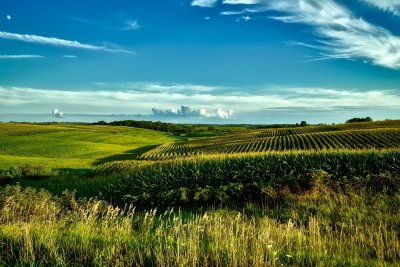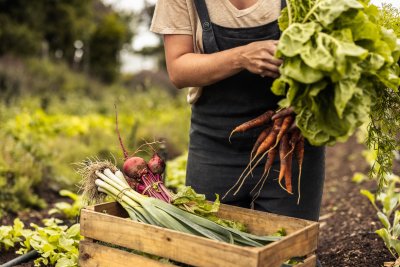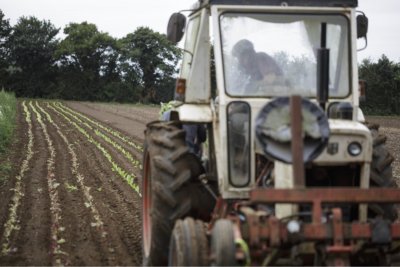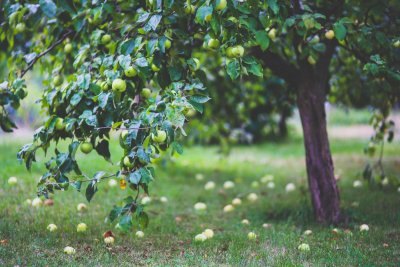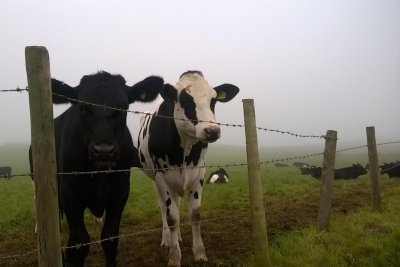News • Sustainable Farming Campaign
Rural White Paper consultation (1999): Sustain Agriculture Policy Working party response
SUMMARY
1: Sustain welcomes this MAFF and DETR initiative to tackle rural issues in England in an integrated way. Given the nature of our work, these comments are confined to areas concerning farming and food whilst recognising that there are many other issues to consider. We believe that farming and food production remain central to the maintenance of a thriving rural economy and high quality countryside. Promoting more sustainable food production systems must be at the heart of any Rural White Paper. There is an inherent advantage in targeting food production as a means to enhance rural employment and economies. It has a whole range of labour demands from work on short term capital works to much longer term employment in areas such as food processing and retailing operations.
2: The production and delivery of food plays a central role in the economy, culture and life of the rural community, and much of the industry is, by its nature small scale compared to many other businesses. Farming also already enjoys considerable public financial support through the CAP. Given the right economic conditions, incentives and assistance, the thousands of farmers in the UK and allied rural businesses could absorb more labour.
3: The key objective should be maintaining diversity - diversity of farming systems and sizes, diversity of landscape and wildlife, diversity of food processing and retailing and diversity of quality job opportunities for those living and working in rural areas. In order to ensure this, Government must seriously reconsider its position in relation to CAP reform such that funds are shifted from production support to supporting systems and must halt the continued erosion of small rural businesses unable to compete with big businesses such as multiple retailers.
Question 1
4: The vision set out in Paragraph 2.1 and the Principles set out in 2.2-2.6 are good. We believe that it is clearly the right time to rethink our attitudes to agricultural support, rural development, the environment and job creation. The challenges facing farming and rural areas will be best met not by bringing in inappropriate business development, but by developing a diverse range of sustainable farm and food based industries.
5: Forms of agriculture which produce good quality food, which enhance the environment and which create worthwhile job opportunities, both on the land and in associated industries, must be encouraged. This needs a fundamental change in the way we support farming in England and in Europe.
6: Developing and implementing policy measures and investment strategies that can shift the balance away from wasting both natural and human resources is vital to the future of the UK economy. At the present time, however, analysis of the potential for such win-win solutions in agriculture is underdeveloped. This is the challenge facing policy makers, the farming community and consumers alike.
7: By switching support away from the richest farm sectors (such as arable) and providing support for sustainable agriculture it is possible to protect the environment, whilst facilitating job creation: a double yield (see enclosed report Double Yield).
Question 2
8: The emphasis here is very much on creating new businesses when in fact we believe there is considerable scope for enhancing and developing the existing businesses in rural areas.
9: Encouragement of any new industries must be based on a plan for sustainable development of an area. Any planned development must be subject to rigorous independent impact assessment. This must include assessment of the impact on transport, jobs, retail and other businesses, environment and local culture and distinctiveness. Experience and empirical evidence has shown that in many areas, the insensitive introduction of new businesses can be detrimental to the rural economy, society and environment as a whole. New superstores are one such example where the net loss of jobs as a result of a new superstore opening has been shown to be significant (The impact of out of centre food superstores on local retail employment, National Retail Planning Forum, 1998, quoted in Observer 12.7.98).
10: Information and Communication Technologies (ICTs)can play a positive role which has not yet been adequately explored. We would like to see the Government supporting initiatives which give all sectors of society the opportunity to benefits from these technologies in areas such as distance learning, training, and even access to retail goods such as food. Linking small scale suppliers with their customers direct though IT systems may be a good way to ensure prices are kept low by avoiding intermediaries. Suppliers such as small scale growers are then able to supply low income consumers.
11: There are problems inherent in promoting flexible working practices which we would like to see avoided. The increase in mechanisation and market specialisation in farming and food processing have resulted in a far greater requirement for casual and flexible labour. These jobs often involve lower pay and a reduced quality and stability of work. In addition there has been a marked increase in the use of relief workers and agricultural contractors. Full time male work in farming itself is becoming increasingly casualised and this is pushing out female casual employment and reducing wages all round(see Double Yield). Small scale businesses are far more efficient at using people and the environment and should be encouraged.
12: The Rural White paper must include adequate support for small and family businesses and in particular should halt the decline in essential food related businesses such as small abattoirs and village shops.
Question 3
13: We believe the emphasis of this question is wrong. Enhancing competitiveness will tend to lead to reduced job opportunities and therefore less money being circulated in the rural economy. What we would like to see is an enhancement of the sustainability of the farm and food system such that it is able to sustain jobs, the environment and rural communities simultaneously.
14: An example of this can be seen with organic food businesses (production, processing, marketing and retail) which produce food in an environmentally sensitive manner, whist providing more local jobs and using more local businesses. (See Double Yield enclosed for data)
15: UK agri-business can not compete directly with overseas producers such as cereal or beef producers in the US, Argentina or Australasia as much of the farming in these areas benefits from significant advantages. These include scale of production, less attention to protecting farmed countryside and biodiversity, better climates and lower regulatory standards.
16: The UK Government must place more emphasis on promoting the advantages of local production to UK consumers which could and should include a conserved environment, higher welfare standards, better quality food and thriving rural communities.
Question 4
17: In terms of priorities one of the underlying themes for this Paper must be the need to make UK farming and food systems more sustainable in ecological, as well as economic and social terms. Looking at agriculture alone, the reality is that much of today's farming is dependent on chemical and capital inputs and provides a limited range of benefits to society - the main one being raw food materials for the food processing industry. The kind of food production system that could be truly sustainable should embrace the following goals:
- Achieve the sustainable use of resources such as water, soil and energy. Sustainable farming methods aim to preserve and improve the soil as much as possible by adding organic matter to stabilise soil structure, increasing the use of suitable crops to reduce erosion and feeding soil fauna to aid nutrient cycling. Energy use can be reduced through, for example; optimal fertiliser application and multiple cropping to increase plant photosynthetic use efficiency.
- Ensure the welfare of farm animals. Minimising the stresses and unnatural conditions imposed on livestock will reduce suffering and also reduce risk of food safety problems. Clean grazing, free range systems and lower stocking rates will enhance welfare.
- Minimise agricultural pollution from agro-chemicals. Optimum yields can be achieved through the use of integrated pest management techniques, relying on natural regulation mechanisms, appropriate varieties and crops, rotation and biological control methods. Permaculture practitioners and organic farmers make maximum use of such methods. Avoiding unproven technology will also reduce risk. This will improve relations between the public and farming community. Reducing waste and surplus production is also essential to avoid pollution and damaging third country markets.
- Enhance the genetic resource base for agriculture - agriculture has traditionally depended on a rich diversity of varieties of all of the major food crops. This provides better food security, more choice for farmers to select for suitability and more choice for consumers.
- Conserve wildlife and countryside, sensitive habitats and landscapes through more environmentally sensitive practices. Sustainable farming systems tend to be more diverse than conventional monocultures, thus providing better wildlife habitats. Bird populations tend to be higher on organic farms rather than conventional ones and hedgerows can increase crop yields by providing wildlife shelter and acting as a habitat for biocontrol species.
- Increase localisation and reduce food miles through shorter food marketing chains, greater utilisation of local resources within each region of the UK, and greater consumer awareness of the sourcing of food products. Linking people with their food will encourage consumption patterns that avoid environmental degradation and promote the production of healthy food.
- Ensure a supply of safe, wholesome and affordable food - farmers need to avoid practices that can produce food unfit for consumption. Beyond the farm gate the processors, traders, retailers and caterers should set high standards promoting produce which is grown, processed and sold in a way that does not erode the environment, but does promote economic well-being (for producers) and offers a real choice to the consumer.
- Contribute to the maintenance of vibrant economies in rural areas - In terms of preserving our rural heritage, it is not enough to have people living in the countryside. There needs to be people actively involved and employed in agriculture and the land based industries. This will, in turn, enhance cultural diversity in rural areas.
18: Making the connection between what works for the environment and also for rural people is the crucial step. The impact on employment and the local economy (both positively and negatively) can be categorised into four main areas.
- direct farm labour. This could include growing more labour intensive crops such as horticulture; new methods of pest control; replacing chemical with mechanical or hand weeding; increased requirements for animal husbandry such as clean grazing systems and health monitoring; and conservation activities such as habitat creation
- diverse on-farm enterprise through activities such as packaging, processing, new marketing strategies for produce, diversification into leisure, education, tourism.
- impact on upstream and down stream suppliers, contractors, advisors, buyers and retailers. There is also likely to be an increased requirement for advice or labour to carry out the activities in the new enterprises and to undertake conservation and capital works.
- impact on local business and services (such as use of local shops, post office, transport). More employment, businesses and attractions will lead to more economic activity in an area.
19: Locally or regionally based small enterprises are more likely to achieve the benefits described above than large national operators. Small and medium sized businesses in particular, can be vital in alleviating unemployment. It has been suggested that unemployment levels would be two to three times higher without the contribution of 'micro'-businesses and the self-employed.
20: However, before MAFF and DETR decide their priorities for funding and effort they must examine where the bulk of resources are already allocated. Inevitably this will lead to the CAP as this involves over £3 billion and a large proportion of MAFF time and effort to administer. The Environmental Agency and DETR spend considerable time and money combating the adverse impact of the CAP. Whilst recognising that CAP reform is not in the hands of the UK Government alone, MAFF and DETR could work to maximise the amount spent on agri-environment and rural development within the EU budget and ensure that within the UK funds are used to enhance rural environment and economies.
21: This must involve introducing conditions to subsidies, increasing significantly the funds available for agri-environment schemes, allocating grants to new farm entrants and training, ensuring that rural development grants such as Objective 5b (and the future Rural Development Regulation Grants) are accessible and used to enhance sustainable businesses connected with the production of quality food.
Question 5
22: The best way to ensure the viability of rural services is to ensure there are people to use them. One-off grants and short term initiatives may work for a while but the services quickly disappear once the money runs out. As we found in our work on Double Yield, the development of more sustainable farming systems uses more people (employed and self-employed) and creates a more stable rural community.
23: As one organic farmer responding to a survey we carried out put it "the school and one village pub would have closed by now if we employed at conventional farming levels". The survey indicated at least 10% more employment was provided by organic food production systems. Our work also calculated that with a few changes to the way in which farming was supported by Government and with a more forward thinking farming industry over 60,000 new jobs could be sustained (see Table 5 in the report). Conservation of the countryside and biodiversity protection also provides considerable opportunities for job enhancement and creation.
24: We repeat that one of the best ways to enhance rural services is to ensure that people are there to use them. Targeting subsidies, advice and assistance to food and farming systems which employ more people and use local businesses and services must be a priority.
Question 9
25: We would like to see MAFF shift its focus decisively towards developing new and more sustainable farming and away from the existing emphasis which is on simply administering the CAP and promoting existing agricultural sectors and practices. This should include working at UK and EU level to secure more finance and support for organic production and working with The Countryside Agency and DETR and DTI to promote better matching of local food demands with supply.
Question 10
26: One issue which has helped to undermine understanding between town and country is that of major retail developments. Over the past 15 years we have seen an explosion of new retail parks and out or edge of town shopping centres. These have in many cases had a detrimental impact on the local retailers and have also resulted in loss of green belt and agricultural land. As people have inevitably shifted their shopping habits to take advantage of these 'one stop shopping' areas local shops have lost custom. The concentration of retailing and the lengthy and complex distribution chains operated by the multiples has resulted in a further distancing of consumers from their suppliers . This has lead to increased isolation of farmers and more misunderstandings between 'town and country'.
27: Any further retail developments should be subject to far more rigorous impact assessments covering: transport; retail; environment; and jobs and the rural economy.
28: One of the problems with this issue is the paucity of available research and the lack of adequate assessment of the effects on rural and urban communities.
29: We suggest that MAFF and DETR instigate a long term study of the flow of money into and out of a typical rural area. This would provide a useful picture of how resources can be siphoned away from, or retained within, a rural area.
Question 11
30: Introducing targets for developing a more sustainable food system as part of a rural strategy must be an essential part of the Rural White Paper. Targets relevant to food and farming could include the following:
- an increase in the acreage of farmland that is organic
- farmland covered by agri-environment schemes and a target for allocation of funds for agri-environment schemes
- reduction in use of agro-chemicals and increase in use of biological control agents by farmers and growers
- a larger number of local initiatives linking farmers and consumers directly
- maintaining the level of sustainable rural businesses and increasing the numbers of new enterprises with objectives based on sustainable food production
31: Other targets would be developed to cover issues such as housing, rural incomes, transport and other rural services.
32: Indicators could be used to monitor progress on these targets. We have carried some innovative work on indicators and I include the final project report, The Food Indicators Report - which gives recommendations for new and better indicators on food and farming. We also developed a pack for local communities called The Food Indicators Toolkit which is designed to help local groups, local authorities and others to find out what they want to measure and how to do it.
Published Sunday 12 December 1999
Sustainable Farming Campaign: Sustain encourages integration of sustainable food and farming into local, regional and national government policies.
